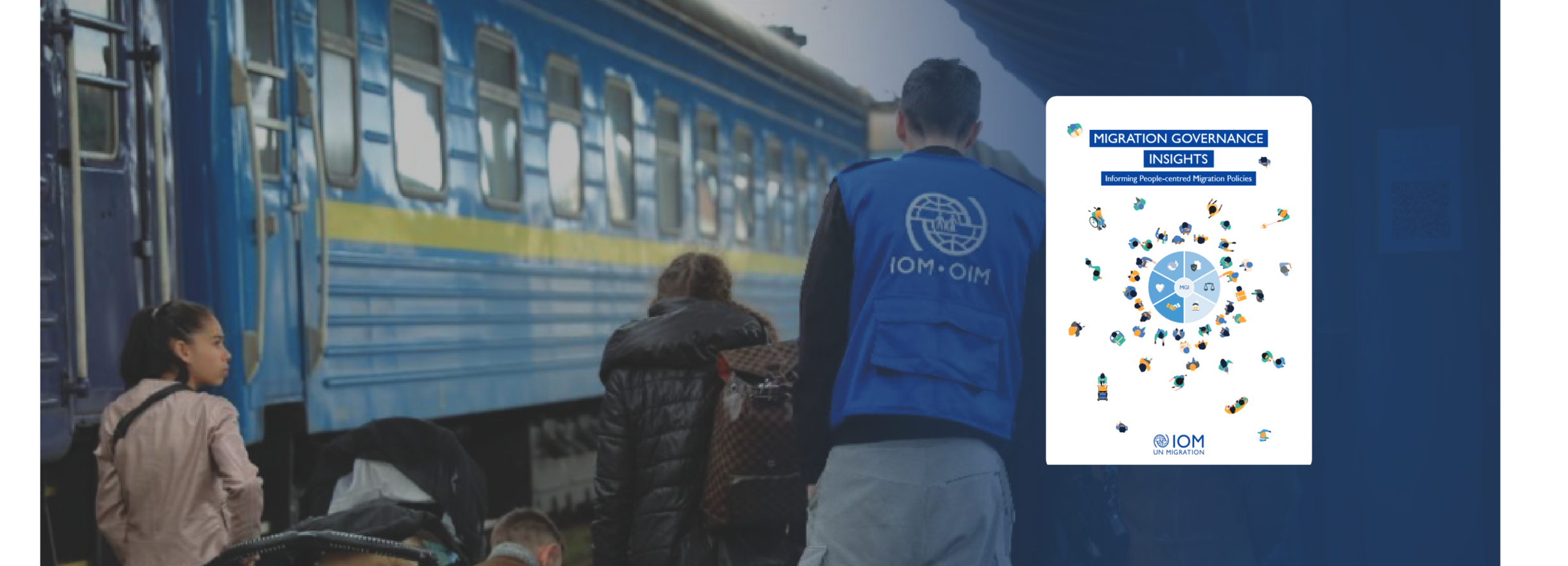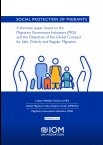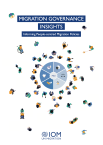About the Migration Governance Indicators (MGI)
Informing policy change since 2016
The MGI helps governments, upon request, take stock of their migration policies and strategies to identify good practices and areas with potential for further development. By focusing on government ownership of the process, the MGI supports governments at the national and local levels to gradually improve their migration management systems.
Migrant's Rights
Indicators in this domain look at:
- Migrants’ access to basic social services and social security
- Family reunification
- Right to work
- Long-term residency and path to citizenship
- Civil participation
- Signature and ratification of international conventions
- Bilateral agreements
Indicators in this domain assess the extent to which migrants have the same status as citizens in terms of access to basic social services such as health, education, and social security. It also describes the rights of migrants to family reunification, to work, and to residency and citizenship. The ratification of the main international conventions is also included within this domain.
Whole of Government Approach
Indicators in this domain look at:
- Institutional framework
- Migration strategy
- Legal framework
- Institutional transparency and coherence
- Migration data
Indicators in this domain assess countries’ institutional, legal, and regulatory frameworks related to migration policies. Domain 2 also reviews the existence of national migration strategies that are in-line with development, as well as institutional transparency and coherence in relation to migration management. This domain also investigates the extent to which governments collect and use migration data.
Partnerships
Indicators in this domain look at:
- Regional cooperation
- Global cooperation
This domain focuses on countries’ efforts to cooperate on migration-related issues with other states and with relevant non-governmental actors, including civil society organizations and the private sector. Cooperation can lead to improvements in governance by aligning and raising standards, increasing dialogue and providing structures to overcome challenges.
Mobility Dimensions
Indicators in this domain look at:
- Crisis resilience and preparedness
- Emergency response
- Post-crisis actions
- Inclusiveness of migrants
This domain studies the type and level of preparedness of countries when they are faced with mobility dimensions of crises, linked to either disasters, the environment and/or conflict. The questions are used to identify the processes in place for nationals and non-nationals both during and after disasters, including whether humanitarian assistance is equally available to migrants as it is to citizens.
Well-being of Migrants
Indicators in this domain look at:
- Labour migration management
- Skills and qualification recognition schemes
- Student migration regulation
- Bilateral labour agreements
- Migrant remittances
This domain includes indicators on countries’ policies for managing the socioeconomic well-being of migrants, through aspects such as the recognition of migrants’ educational and professional qualifications, provisions regulating student migration and the existence of bilateral labour agreements between countries. Indicators equally focus on policies and strategies related to diaspora engagement and migrant remittances.
Safe, Orderly and Regular Migration
Indicators in this domain look at:
- Border control and enforcement
- Admission and eligibility criteria
- Return and reintegration policies
- Measures to combat human trafficking and smuggling
This domain analyses countries’ approaches to migration management in terms of border control and enforcement policies, admission criteria for migrants, preparedness and resilience in the case of significant and unexpected migration flows, as well as the fight against trafficking in human beings and smuggling of migrants. It also assesses efforts and incentives to help integrate returning citizens.
Click on the wheel to learn more about the six dimensions of migration governance included in the MiGOF and MGI.
Search for Migration
Governance Profiles
Angola
Botsuana
Burkina Faso
Burundi
Cabo Verde
Kamerun
Zentralafrikanische Republik
Tschad
Komoren
Côte d’Ivoire
Demokratische Republik Kongo
Dschibuti
Äthiopien
Gambia, The
National Reports
Local Reports
Ghana
National Reports
Local Reports
Guinea
Guinea-Bissau
Kenia
Lesotho
Liberia
National Reports
Local Reports
Madagaskar
Malawi
Mali
Mauretanien
Mauritius, Republic of
Marokko
Mosambik
Namibia
Niger
Nigeria
Ruanda
Senegal
Seychellen
Sierra Leone
Südafrika
Eswatini
Tunesien
Uganda
Sambia
Ensuring government buy-in through a presentation of the process and possible impact of the project.
This is done with the Economist Impact through desk research and key informant interviews to answer all 90+ questions.
Discussion of the findings and identification of ways forward to address gaps.
The Country Profile is endorsed by the government and published in the Migration Data Portal.
Generate a government-wide dialogue on migration governance
Use the findings to inform policy change
Establish baselines to track and report progress on national and international commitments, such as the GCM and SDGs
Contact
We welcome any expression of interest or feedback regarding the MGI process.











